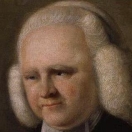In his school and college days Whitefield experienced a strong religious awakening that he called a “new birth.” At Oxford he became an intimate of the Methodists John and Charles Wesley, and at their invitation he joined them in their missionary work in the colony of Georgia in 1738. He was already known as an eloquent evangelist. The rest of his career was divided between evangelical preaching throughout the American colonies from Georgia to Massachusetts and itinerant preaching in England, Scotland, Wales, and Ireland. He believed that every truly religious person needs to experience a rebirth in Jesus; aside from this, he cared little for distinctions of denomination or geography. He played a leading part in the Great Awakening of religious life in the British American colonies and in the early Methodist movement.
 youtu.be
youtu.be
Text transcript:

 www.blueletterbible.org
www.blueletterbible.org
- YouTube
Enjoy the videos and music you love, upload original content, and share it all with friends, family, and the world on YouTube.
Text transcript:

Marks of a True Conversion by George Whitefield
George Whitefield :: Marks of a True Conversion
